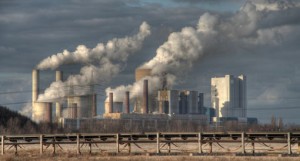Ohio, Pennsylvania and Florida Lead List of “Toxic 20” States with Most Toxic Air Pollution from Power Plants
Worst States: OH, PA, FL, KY, MD, IN, MI, WV, GA, NC, SC, AL, TX, VA, TN, MO, IL, WI, NH, IA
 Washington, DC (July 20, 2011) – Residents of Ohio, Pennsylvania and Florida live in states with the most toxic air pollution from coal- and oil-fired power plants, according to an analysis by the Natural Resources Defense Council.
Washington, DC (July 20, 2011) – Residents of Ohio, Pennsylvania and Florida live in states with the most toxic air pollution from coal- and oil-fired power plants, according to an analysis by the Natural Resources Defense Council.
The study used publicly-available data in the Environmental Protection Agency’s Toxics Release Inventory (TRI). The analysis, entitled “Toxic Power: How Power Plants Contaminate Our Air and States” was jointly released today by NRDC and Physicians for Social Responsibility (PSR).
Among the key findings:
* Nearly half of all the toxic air pollution reported from industrial sources in the United States comes from coal- and oil-fired power plants.
* Power plants are the single largest industrial source of toxic air pollution in 28 states and the District of Columbia.
“Power plants are the biggest industrial toxic air polluters in our country, putting children and families at risk by dumping deadly and dangerous poisons into the air we breathe,” said Dan Lashof, Climate Center Director at NRDC. “Tougher standards are long overdue. Members of Congress who consider blocking toxic pollution safeguards should understand that this literally will cost American children and families their health and lives.”
Despite the health benefits of reducing toxic pollution from power plants, some polluters and members of Congress are seeking to block EPA’s efforts to update public health protections. Last week, two House Committees voted for amendments by Ed Whitfield (R-KY)/Mike Ross (D-AR) and Cynthia Lummis (R-WY) to block for at least a year the EPA’s Mercury and Air Toxics standard. These amendments could move to the House floor as early as this week.
Meanwhile, the chairman of the powerful House Energy and Commerce Committee, Fred Upton (R-MI) has vowed to block EPA’s clean air safeguards. One of the nation’s biggest polluters, American Electric Power (AEP) based in Columbus, Ohio has drafted legislation to block the EPA and has argued against EPA’s current efforts.
The states on the “Toxic 20’’ list (from worst to best) are:
1. Ohio.
2. Pennsylvania.
3. Florida.
4. Kentucky.
5. Maryland.
6. Indiana.
7. Michigan.
8. West Virginia.
9. Georgia.
10. North Carolina.
11. South Carolina.
12. Alabama.
13. Texas.
14. Virginia.
15. Tennessee.
16. Missouri.
17. Illinois.
18. Wisconsin.
19. New Hampshire.
20. Iowa.
The EPA estimates that the reductions of toxic pollution required by the pending “Mercury and Air Toxics” standard would save as many as 17,000 lives every year by 2015 and prevent up to 120,000 cases of childhood asthma symptoms. The safeguards also would avoid more than 12,000 emergency room and hospital visits and prevent 850,000 lost work days every year. These standards are expected to be finalized in November; the agency is taking public comments on its proposal until Aug. 4, 2011.
“Coal pollution is killing Americans,” said Lynn Ringenberg, MD, of Physicians for Social Responsibility. “It is America’s biggest source of toxic air pollution. Air toxics from coal-fired power plants cause cancer, birth defects, and respiratory illness. Just one of those air toxics, mercury, damages the developing brains of fetuses, infants, and small children. It robs our children of healthy neurological development and native intelligence.
“Poisonous power threatens the health of our kids and families. As a pediatrician for over thirty years, I urge us absolutely to support the EPA’s efforts to reduce the health threat from coal.”
The 28 states in which power plants are the leading source of toxic air pollution reported to the TRI are: Alaska, Arizona, Colorado, Delaware, District of Columbia, Florida, Georgia, Hawaii, Illinois, Indiana, Kentucky, Maryland, Massachusetts, Michigan, Missouri, Nebraska, Nevada, New Hampshire, New Jersey, New Mexico, New York, North Carolina, Ohio, Pennsylvania, South Carolina, Tennessee, Virginia, West Virginia and Wyoming.
ABOUT THE DATA
The EPA’s Toxic Release inventory, known as the TRI, is a national database of toxic emissions self-reported by industrial sources. This analysis compared TRI emissions from the electric utilities sector to those from other sectors and ranked sources by total emissions by sector. Releases are calculated and self-reported by covered entities. Emissions of key power plant pollutants are reported to the TRI, including mercury, hydrochloric acid, and other hazardous metals.
Top emitting power plants were identified based on toxic emissions reported to TRI. Power plant ownership information was drawn from “Benchmarking Air Emissions of the 100 Largest Electric Power Producers in the United States (2010).” Data on pollution control systems at specific plants was obtained from EPA’s National Electric Energy Data System Database v.4.10 (2010).
For the full methodology, see the analysis “Toxic Power: How Power Plants Contaminate Our Air and States,”
 Alternative Energy HQ solar power for homes, wind energy, and bio fuel issues
Alternative Energy HQ solar power for homes, wind energy, and bio fuel issues





